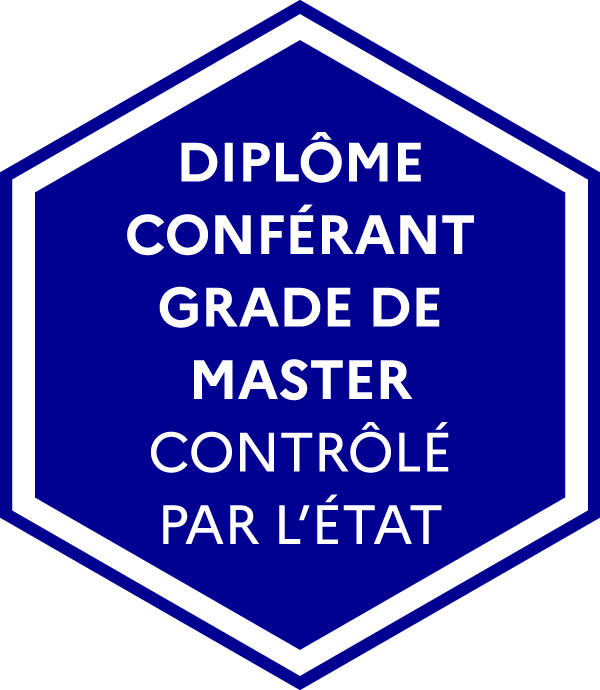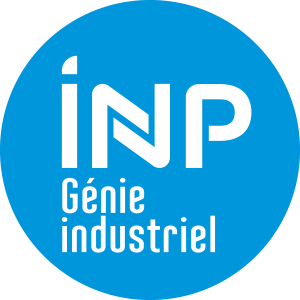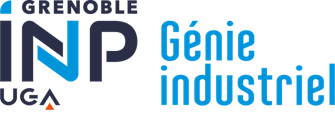Number of hours
- Lectures 13.5
- Projects -
- Tutorials 13.5
- Internship -
- Laboratory works 12.0
- Written tests 3.0
ECTS
ECTS 3.0
Goal(s)
In a product life-cycle, various constraints need to be taken into account when designing industrial processes from the design phase through to the mass production phase. These constraints can be linked to technical, economic or organisational issues. An engineer must specify and implement production technologies, human resources and adapted organisations. The industrial engineer must also manage information exchange and dialogues between the design office, production, purchasing, logistics and distribution.
This course is one of the steps to achieve these skills. It gives the basic groundwork necessary for any future industrial engineer to develop both organisational and technical skills.
The aim is to present the different methods of organising a workshop by following these approaches:
- organize and optimize physical implantation
- organize maintenance
- quality : Design Of Experiments, problems solving
This course is useful for any engineer wishing to work with production services. However, it is particularly relevant to future industrial engineers who will work closely with design offices, method, quality and production services in order to find the best means of production for a given product.
At the end of this course, students are able to:
- Organise and optimise the implementation of the means of production
- Choose the best way to maintain the production system
- Solve problems
Content(s)
Tools and methods for implementing workshops:
- Workshop architecture
- Implementation methods
- Sizing workshop through simulation
- Introduction to Lean Manufacturing
- Practical work on a 'production start up'
Lectures & Tutorials : 5 x 1.5 hours
Practical work : 2 x 4.5 hours
Maintenance :
- Sort of maintenance
- Organization of maintenance
- Facilities diagnostic techniques
- Maintenance in Design
- Total Productive Maintenance
- Maintenance sofware
Lectures & Tutorials : 2 x 1.5 hours
Quality :
- Design Of Experiments
- Problems solving with a practical case
Lectures & Tutorials : 9 x 1.5 hours
Practical guided work : 1 x 1.5 hours
Quality lesson - 1A IPID
Individual writing test on DOE and maintenance (individual). Modalities : no document, school calculators provided.
Report on practical cas of problem solving (in group)
Synthesis of Practical work for implementation and 5S
The course exists in the following branches:
- Curriculum - Engineer IPID apprentice program - Semester 7
Course ID : 4GMA0713
Course language(s): 
You can find this course among all other courses.
En maintenance :
- JM Auberville, Maintenance industrielle : de l’entretien de base à l’optimisation de la sûreté, Ellipse, 2004.
- J BUFFERNE, Le guide de la TPM, Editions d’organisation, 2006.
- M FREDERIC, Mettre en place une GMAO, Dunod, 2003.
- M JONQUIERES, Management environnemental : ISO 14001:2004, AFNOR, 2005
- Y LAVINA, Amélioration continue en maintenance, Dunod, 2005.
- F. MONCHY, la fonction maintenance, Masson, 2003.
En industrialisation
- Pillet M. et al., 2011 (5ème édition), Gestion de production, les fondamentaux et les bonnes pratiques, Editions d’Organisation, Paris
- Dal Pont J.-P., Azzaro-Pantel C., 10/12/2013, Usines du futur. Nouvelles approches dans les industries de procédés, Dossier, Les Techniques de l’ingénieur, Paris
- Hohmann C., Identifier le goulot, la contrainte, (référence du 6 janvier 2014) Disponible sur : <http://http://christian.hohmann.free.fr>
- Ait Hssain A., 2005 (2ème édition), Optimisation des flux de production, Dunod
- Dolgui A., Proth J.-M., 2006, Les systèmes de production modernes, volumes 1 et 2, Lavoisier, Paris
- Hohmann C., 2005, Guide pratique des 5S pour les managers et les encadrants, Les éditions d’organisation
- Javel G., 2010 (4ème édition), Organisation et gestion de la production, Dunod, Paris
- Landy G., 2002, AMDEC Guide pratique, AFNOR
En Qualité :
- Hohmann Christian, Guide pratique du 5S pour les managers et les encadrants, Ed. d'Organisation, 2005
- Pillet Maurice, Les plans d’expériences par la méthode Taguchi, Les éditions d’organisation, 1997
- Sado Gilles et Marie-Christine, Les plans d’expériences, de l’expérimentation à l’assurance qualité, AFNOR, 2000
French State controlled diploma conferring a Master's degree

Common Core presentation
Programme courses S5
Programme courses S6
Supply Chain Management
Programme presentation
Programme courses S7
Programme courses S8
Programme courses S9
Programme courses S10
Product Design
Programme presentation
Programme courses S7
Programme courses S8
Programme courses S9
Programme courses S10
Contacts
Academic staff
- Head of studies:
Pierre Lemaire - Head of 1st Year Program:
Abdourahim Sylla - Head of Supply Chain Management Program:
Irène Gannaz - Head of Product design Program:
Yann Ledoux
Registrar's office
- Head of Registrar's office:
genie-industriel.scolarite@grenoble-inp.fr - Secretary's office 1st Year:
Valérie Demicheli - Secretary's office 2nd Year:
Sylvie Malandrino - Secretary's office 3rd Year:
Vincente Odier - International relations department:
Nadia Dehemchi



